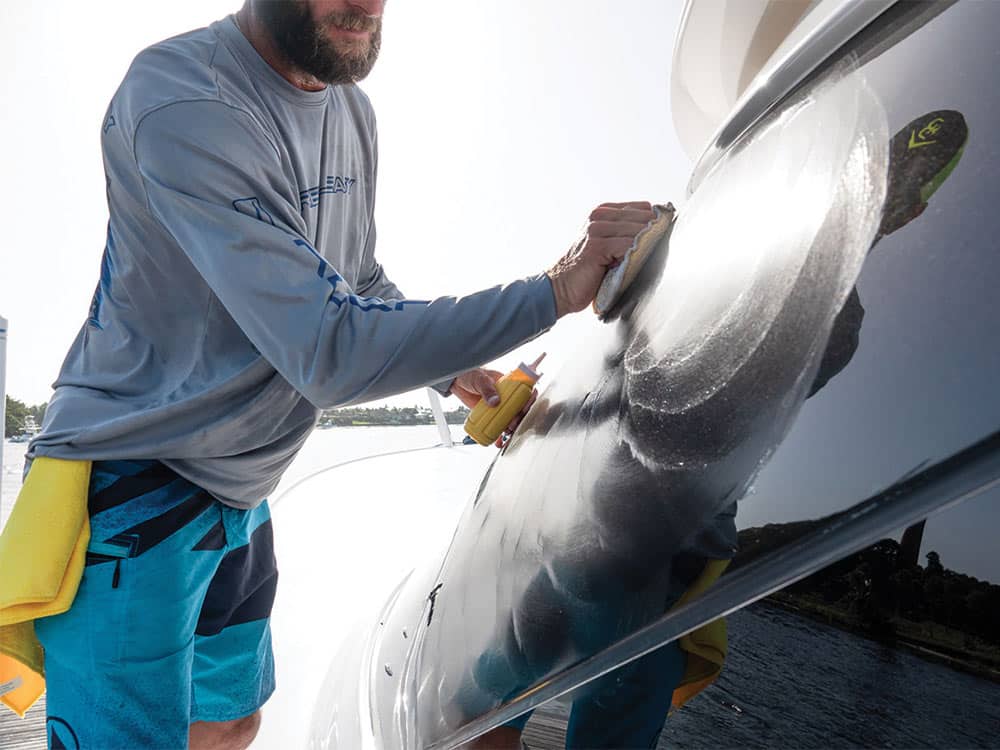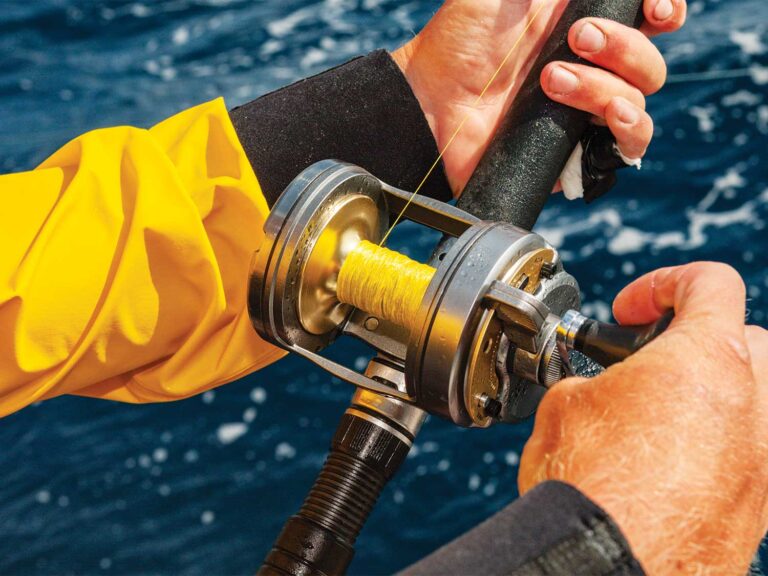
You have just spent a lot of money on a new boat and it still has that new-penny shine, you’re a captain responsible for keeping the boat looking perfect or maybe your boat just got detailed. No matter the situation, you have a perfect surface and you need to protect it in order to keep it that way for as long as possible. When paint or gelcoat loses its luster, it’s time to hire a professional.
Be a Realist
There are basically three options on the marine market to help you achieve that mirrorlike finish we all strive for: Traditional carnauba wax products; acrylic polymer sealants; or the newest buzz — ceramic coatings.
It is important to remember that all of these products are designed to protect against UV rays, hard water, acid rain, salt, and a myriad of other environmental contaminants. There is no special sauce to make the boat look and stay perfect in just one step. Everyone wants something inexpensive, easy to apply and remove, and lasts for months. Spoiler alert: It doesn’t exist.
After speaking to several industry professionals, and getting feedback from some expert crews, we have some helpful information to assist you in choosing a product that will work for you.
What’s the Difference?
Wax, or products that contain wax, have been keeping cars and boats shiny for decades. It was — and maybe still is — used to coat the bottoms of speedboats in the 1960s. Carnauba wax is a plant-based organic material made from the leaves of a Brazilian palm tree, and waxes found in the marketplace are made up of different blends of carnauba wax.
Paste waxes usually contain a higher level of carnauba, while wax in a liquid form is a blend of multiple materials such as oils, other waxes and petroleum distillates — making them easier to apply. The more carnauba the medium contains, the higher the price. The elements that wreak havoc on your boat’s finish, in addition to boat soap, cause those additives to disintegrate, and in tropical locales where ambient temperatures are normally high, the wax breaks down.
Wax provides a very high level of shine as well as some level of protection. The boat looks great right after the application, so the results are admired. But, unfortunately, pure carnauba products wear off quickly and require reapplication at regular intervals, which can sometimes damage the surface or cause discoloration or hazing.
Polymer sealants are a chain of synthetic materials linked together. The majority of coating products sold in the marine industry are typically a blend of these chemical polymers, silicones and resins. They are chemically engineered to be harder, to hold up in higher temperatures and also to bond to the surface rather than coating it.
Polymers typically last longer because of this bond, but they don’t create a super-shiny finish like traditional waxes, so it’s important to compound the surface to a shine before applying. What’s more confusing to the consumer is that many of the products available are a blend of waxes and polymer chemicals. And they almost all contain petroleum distillates. The most advanced products on the market will contain zero carnauba wax, and with the right care, also will last the longest.
Ceramic coatings are fairly new in the marine industry and are also made up of polymers, albeit a much harder material — similar to the makeup of glass. 9H ceramic coatings, or nanocoatings, are used to seal materials at the atomic level. The molecules arrange themselves to form a network, which is then used to protect the material it covers.
Some are so hard, they need to be sanded to remove them.
These are advanced products that should only be applied professionally to avoid damage to your finish. More commonly used on metal such as cleats and outriggers, nanocoatings are also extremely effective in protecting against salt and sun.
Learn to properly maintain your teak here.
K.I.S.S.
A properly protected surface will shed dirt, making soap practically unnecessary. Using the right products while avoiding strong detergents will extend the life of your hard work.
If you get your boat professionally compounded and polished to the base shine you desire, be educated on how to protect it, eliminate carnauba-based products and use as little soap as possible, your investment will be well-maintained.
Technology is making huge advances on this front, and we are going to see major changes in the next few years. But for now, proceed with caution.







